The Odyssey of Political Theory
The Odyssey of Political Theory
The Politics of Departure and Return
Patrick J. Deneen

ROWMAN & LITTLEFIELD PUBLISHERS, INC.
Published in the United States of America
by Rowman & Littlefield Publishers, Inc.
A Member of the Rowman & Littlefield Publishing Group
4501 Forbes Boulevard, Suite 200, Lanham, Maryland 20706
http://www.rowmanlittlefield.com
PO Box 317
Oxford, OX2 9RU, UK
Copyright 2000 by Rowman & Littlefield Publishers, Inc.
First paperback edition 2003
All rights reserved No part of this publication may be reproduced, stored in a retrieval system, or transmitted in any form or by any means, electronic, mechanical, photocopying, recording, or otherwise, without the prior permission of the publisher.
British Library Cataloguing in Publication Information Available
The hardcover edition of this book was catalogued by the Library of Congress as follows:
Deneen, Patrick J., 1964
The odyssey of political theory : the politics of departure and return / Patrick J. Deneen.
p. cm.
Includes bibliographical references and index.
1. Political scienceHistory. 2. Homer. Odyssey. I. Title.
JA81.D43 2000
320'.01'1dc21 00-024133
ISBN: 978-0-8476-9623-9 0-8476-9623-5 (pbk : alk paper)
Printed in the United States of America
 The paper used in this publication meets the minimum requirements of American National Standard for Information SciencesPermanence of Paper for Printed Library Materials, ANSI/NISO Z39.481992.
The paper used in this publication meets the minimum requirements of American National Standard for Information SciencesPermanence of Paper for Printed Library Materials, ANSI/NISO Z39.481992.
To the memory of my grandmother
Wilma L. Dionne
19172000
storyteller, reader, and Muse
Contents

Acknowledgments

The publisher and author gratefully acknowledge permission to reprint excerpts from the following sources:
Excerpt from The Odyssey of Homer by Richmond Lattimore. Copyright 1965, 1967 by Richmond Lattimore. Copyright Renewed. Reprinted by permission of HarperCollins Publishers, Inc.
Excerpt from The Republic of Plato (2nd ed.), translated by Allan Bloom. Copyright 1968 by Allan Bloom. Preface to the paperback edition, copyright 1991 by Allan Bloom. Reprinted by permission of Basic Books, a member of Perseus Books, L.L.C.
Excerpt from Emile or On Education by Jean-Jacques Rousseau, translated by Allan Bloom. Copyright 1979 by Basic Books, Inc. Reprinted by permission of Basic Books, a member of Perseus Books, L.L.C.
Excerpt from The New Science of Giambattista Vico by Giambattista Vico (revised and abridged translation of the 3rd ed.), translated by Thomas Goddard Bergin and Max Harold Fisch. Copyright 1948 by Cornell University.
Excerpt from Dialectic of Enlightenment, translated by John Cumming. Copyright 1972 by Herder and Herder, Inc. Copyright 1991 by The Continuum Publishing Company.
Illustrations in the appendix are from Rousseaus Emile, 1762, and Vicos Principi di Scienza Nuova, 1744. Reprinted with permission from Princeton University Library, Department of Rare Books and Special Collections.
Preface

Only with utmost difficulty will I resist again resorting to the inviting resonance of the word odyssey to describe the long and halting path of this book. I suspect that all authors must travel a trying and circuitous route, so the subject of my studythe Odyssey of Homer as a work of political theory and the ways that the work has been understood, interpreted, or even misinterpreted in the history of political thoughtgives me little right to its exclusive use. Yet, along the way, although I have encountered many obstacles that to me have been as daunting, if not as dangerous, as those faced by Odysseus, unlike Odysseuswho only found true friendship at the end of his journeyI have had the help of friends, old and new, from the outset.
This book began, as many first books do, as a dissertation and, perhaps not unlike many dissertations, had its origins amid the many conversations with my friends from graduate school. I can recall the first time I floated the idea of pursuing Homers Odyssey as a subject of political inquiry. My friends Joseph Romance, Clifford Fox, and Deirdre Condit supported the idea, I would like to think, on its merits; however, their enthusiasm was perhaps magnified by the libations that we liberally shared at Tumultys pub, where, half joking, we imagined that the bar stools might eventually be inscribed with our names in honor of our long patronage.
I am deeply grateful to my teachers at Rutgers University, especially to Benjamin R. Barber, whose early support of this idea convinced me that it was worth pursuing and whose continued friendship has, at several points, made a difference in my life path for the better. P. Dennis Bathory taught the first undergraduate course I attendeda fact that he acknowledges with a grimacewhich, I still recall, was devoted to an exploration of the meaning of Platos Allegory of the Cave. He posed a conundrum that continued to fascinate me for many years, and my furtive attempts to add to the vast literature on Plato in the pages that follow are a testament to our attempts to come to terms with Platos meaning on that warm afternoon almost two decades ago. Arlene Saxonhouse served as an outside reader on my dissertation and asked questions that I still ponder and have tried to answer, Im sure in ways that would provoke more searching and thoughtful questions.
At Princeton I have gained valuably from the insights of my colleagues, especially George Kateb, who continues to insist, perhaps rightly, that I am too hard on Achilles; and Maurizio Viroli, whose prowess at soccer is the closest analogue I have witnessed to a kind of Homeric athletic virtue in todays academia. Parts of the manuscript were read by studentsI use the term loosely because I guiltily realize that often I learn more from them than I suspect they do from meand among them I am especially grateful to Lynn Robinson and Jonathan Allen for their generous comments.
The manuscript was also read by Norma Thompson and Michael Davis for Rowman & Littlefield, both of whom revealed themselves to me after encouraging the project. Each provided a wealth of suggestions on how I might improve the manuscript, and I have attempted to address many of their points. Jacob Howland subsequently read the manuscript, in a gesture of extraordinary kindness. I am deeply grateful to Jacob for his extensive comments and for sharing his ranging knowledge of Greek thought. Steve Wrinn at Rowman & Littlefield lent this project his enthusiastic support; and aside from his good taste in manuscripts, he is a good fellow to boot.
I have also benefited from material support from several sources. The Earhart Foundation generously provided assistance during the summer before the projects completion, and the Pew Foundations Pew Evangelical Fellows Award allowed me to take a leave in the following semester as I completed the manuscript. Princeton University provided additional research assistance for preparation of the manuscript. Susan McWilliams and James Mastrangelo quite miraculously transformed the rough collection of citations into a consistent whole.
Special thanks are owed to my mentor and friend, Wilson Carey McWilliams, who showed me that literature, politics, and philosophy are rightly pursued together. More importantly, I thank him for showing me that ones academic life does not exist at a remove from how one can live ones life generally. Generosity, laughter, and beauty of expression deserve an honored place within the university.
Next page

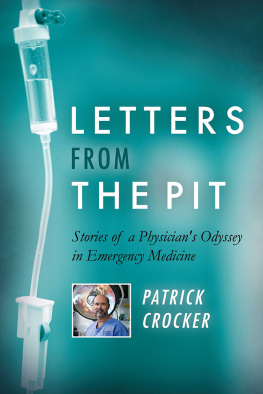
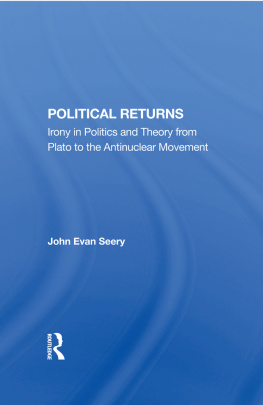
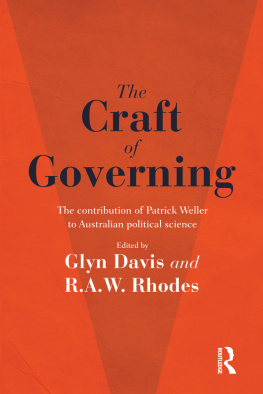
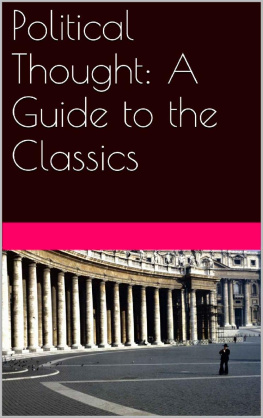
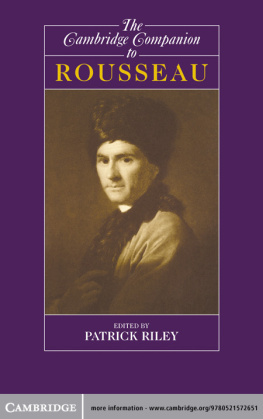

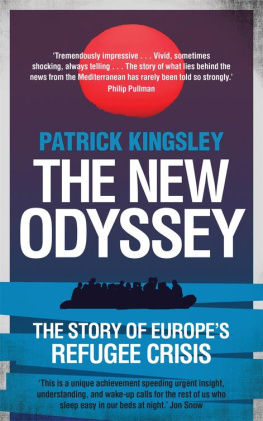
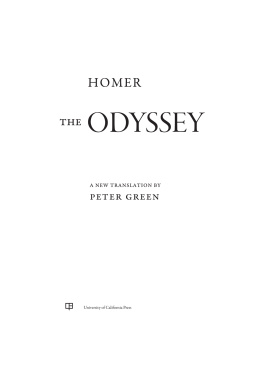

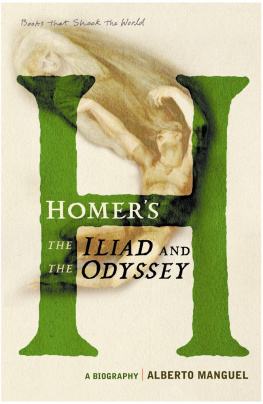

 The paper used in this publication meets the minimum requirements of American National Standard for Information SciencesPermanence of Paper for Printed Library Materials, ANSI/NISO Z39.481992.
The paper used in this publication meets the minimum requirements of American National Standard for Information SciencesPermanence of Paper for Printed Library Materials, ANSI/NISO Z39.481992.